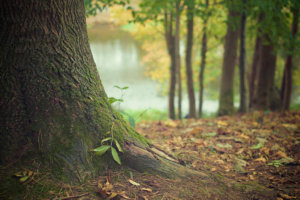Nature loss is real, and it’s time to do something
To put it simply, humans are using the equivalent of 1.6 Earths to maintain our current way of life and ecosystems cannot keep up with our demands. Humans and livestock make up 96 percent of the biomass of all mammals on the planet. Wild mammals account for only 4 percent.
 According to the most recent data, the population of birds across North America has declined by 30 percent in less than 50 years, and 40 percent of the Earth’s insect species are in decline and facing extinction. One million of the world’s species are threatened with extinction. Human actions have significantly altered 75 percent of the Earth’s land surface, including 85 percent of wetland areas.
According to the most recent data, the population of birds across North America has declined by 30 percent in less than 50 years, and 40 percent of the Earth’s insect species are in decline and facing extinction. One million of the world’s species are threatened with extinction. Human actions have significantly altered 75 percent of the Earth’s land surface, including 85 percent of wetland areas.
Nature loss has far-reaching consequences. Damaged ecosystems exacerbate climate change, undermine food security and put people and communities at risk. Although many feel that nature simply has a right to thrive for its own sake, there are other reasons to protect our ecosystems.
As stated in the World Economic Forum’s 2020 Global Risk Report, over half the world’s economy ($44 trillion) is moderately or highly dependent on nature and its services. In Vermont, a healthy ecosystem is essential for our tourism economy as well as clean water, flood protection, pollinator services, carbon sequestration and the working landscape — to name just a few benefits.
Just to our north in Montreal, the Biodiversity Conference (COP15) was held in December 2022 with the adoption of the global biodiversity framework. The aim of this framework is to address biodiversity loss, restore ecosystems and protect Indigenous rights. It offers measures to halt and reverse nature loss, calling to protect 30 percent of the planet and 30 percent of degraded ecosystems by 2030. Many scientists believe that in order to halt the decline of nature and the extinction of species, 50 percent of the Earth’s surface needs to be dedicated to nature.
Although the United States was not one of the 188 governments officially participating in the Biodiversity Conference last year. The only other non-participant being the Holy See.
So, what can we do? How can we participate in impactful local action? Consider these suggestions for community action to protect nature:
- Write, support, or reach out to our elected representatives in local (selectboard), state and national offices and encourage further legislative action to protect our natural world.
- As Charlotte updates our land use regulations, discuss with our neighbors serving on the Planning Commission the importance of using strong language for the protection of nature, taking guidance from the Global Biodiversity Framework. Words such as “must” or “shall” should replace words such as “may” or “should”. It seems trivial. It is not. The land use regulations provide the legal guidelines for the Development Review Board and as such the wording is extremely important in the evaluation of proposed development.
- Learn about ways to support the work of town and state conservation organizations such as the Charlotte Conservation Commission, Sustainable Charlotte, Lewis Creek Association, Charlotte Park and Wildlife Refuge, Charlotte Land Trust, Lake Champlain Land Trust, Vermont Land Trust, Vermont Alliance for Half-Earth. Share your suggestions, thoughts, concerns, ideas and the names of groups I have inadvertently left off this list on social media.
- And even more local — consider reducing your lawn size, cutting out the use of pesticides, removing non-native invasive species and sourcing native plants for your yard.
To find even more suggestions for local action, the recently published book, “Our Better Nature: Hopeful Excursions in Saving Biodiversity” offers stories, essays, resources and a message of hope from the state of Vermont.
To conclude, I would like to share two quotes from the Biodiversity Conference (COP15) Inger Andersen, the United Nations environment program executive director:
- “For far too long humanity has paved over, fragmented, over-extracted and destroyed the natural world on which we all depend. Now is our chance to shore up and strengthen the web of life, so it can carry the full weight of generations to come.”
- “Success will be measured by our rapid and consistent progress in implementing what we have agreed to. The entire U.N. system is geared to support its implementation so we can truly make peace with nature.”
Now is the time for not only for the United Nations, but also for Charlotters, to make peace with nature.
The Charlotte Conservation Commission meets the fourth Tuesday of the month. All are welcome.
(Sharon Mount is a member of the Charlotte Conservation Commission.)

